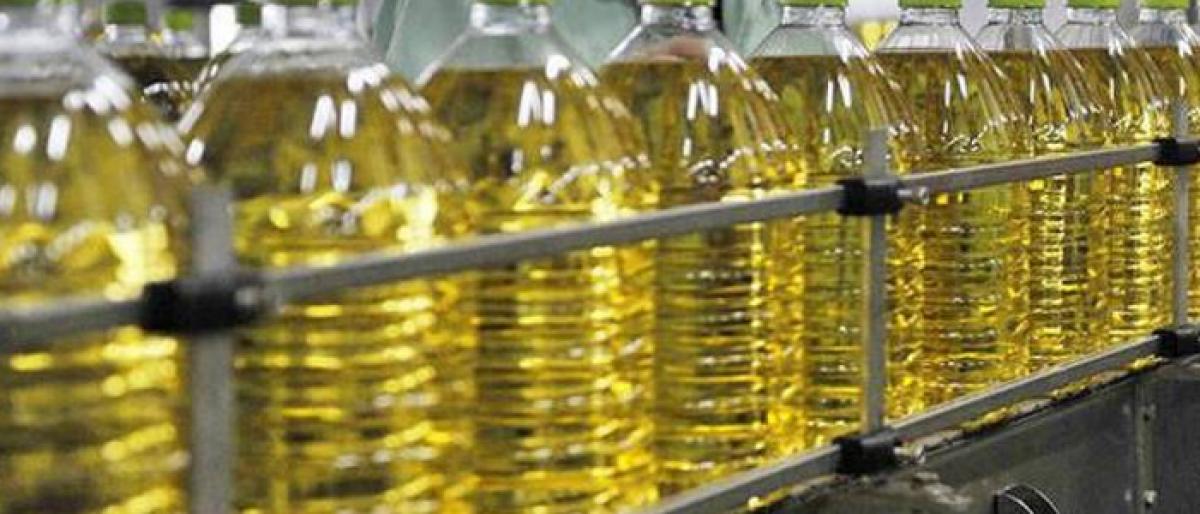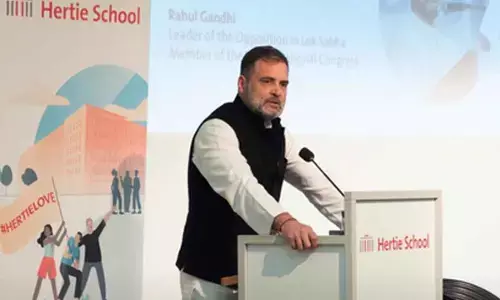Relook edible oil policy

Earlier, this month, India raised import tax on crude and refined palm oil to the highest level in more than a decade, as the world’s biggest edible oil importer tried to support local farmers. The duty increase is supposed to lift oilseed prices and encourage domestic supply for crushing, helping cap edible oil imports in the 2017-18 marketing year that started on November 1.
Earlier, this month, India raised import tax on crude and refined palm oil to the highest level in more than a decade, as the world’s biggest edible oil importer tried to support local farmers. The duty increase is supposed to lift oilseed prices and encourage domestic supply for crushing, helping cap edible oil imports in the 2017-18 marketing year that started on November 1.
The raise is 14 per cent - up from 30 per cent to 44 per cent and while the tax on refined palm oil to 54 per cent from 40 per cent. The country relies on imports for 70 per cent of its edible oil consumption. The fourth increase in import tax in less than six months would push up domestic edible oil prices and support prices of local oilseeds like soybean NSBc1 and rapeseed NRSc1.
While the domestic requirement of edible oil in the country around 25 million MT, the total production of the same is just about nine million MT. The entire gap is being met through imports which amounts to approximately Rs 70,000 to Rs 75,000 crore per annum.
Palm oil currently constitutes 70 per cent of the vegetable oil imports and is one of the cheapest due to high productivity per hectare. However, the policy objectives should be to balance the interests of growers and consumers alike. At the same time the policy must ensure that poor consumers have access to cooking oil at affordable prices.
Clearly, liberal policies or free market operations of the last quarter of a century in the country have failed to protect domestic growers in so far as the oilseeds and veg oil sector is concerned. It is time we looked at the familiar vegetable oil sector from unfamiliar angles. First of all, there must a ceiling on the volume of imported edible oil. There is reason to believe that private trade imports excessive quantities for speculative purposes and floods the domestic market which in turn depresses domestic oilseed prices.
A reasonable guess would be that up to 15 per cent of the current import volume is speculation driven and often it represents not genuine sale but stock transfer from the origin (Indonesia, Malaysia) to the destination market (India). Huge inventories (as much as two million tons) are often piled up in India which in turn depresses the domestic market.
A ceiling on veg oil import (with a provision to review it every six months, depending on the exigencies of the situation) will reduce the quantum of arrivals and support domestic producers. Imports have to be monitored in terms of registration of contracts and tracking of arrivals. There is a long credit period for importers which encourages over-trading and fosters an unending loop of imports.
Reducing the credit period can make a difference. In addition to dynamic changes in tariff values as practised at present, import duties should be varied dynamically so that imported oils are not cheaper than the MSP for domestic oils. Unless the government keeps the consumer in mind in making the policies, the undernourished families would continue to suffer.







